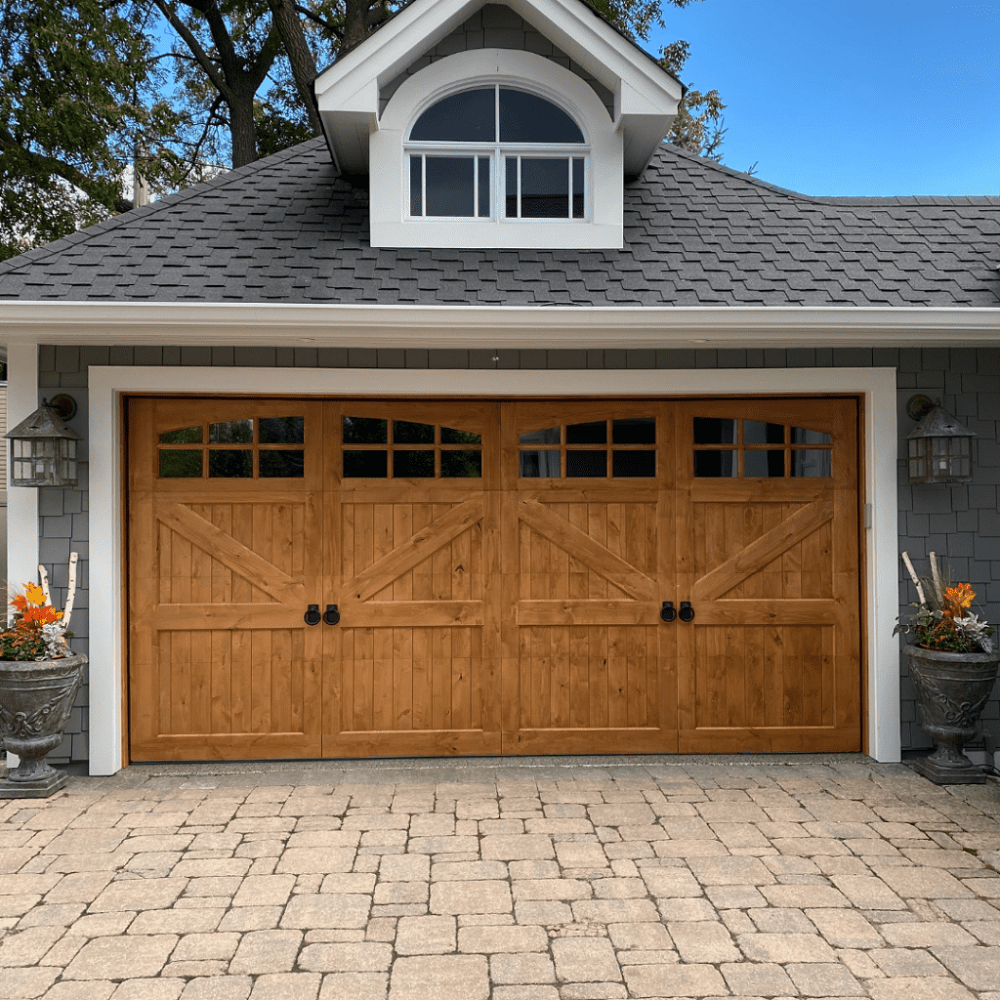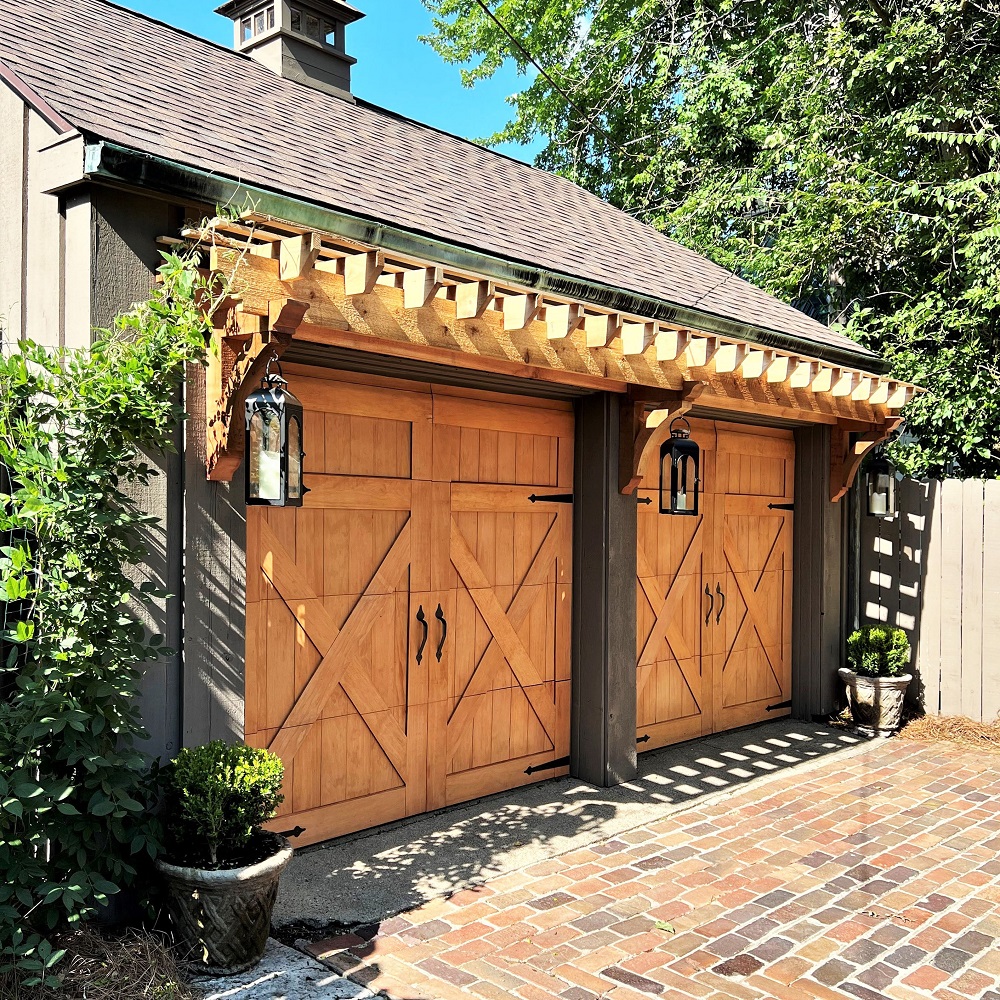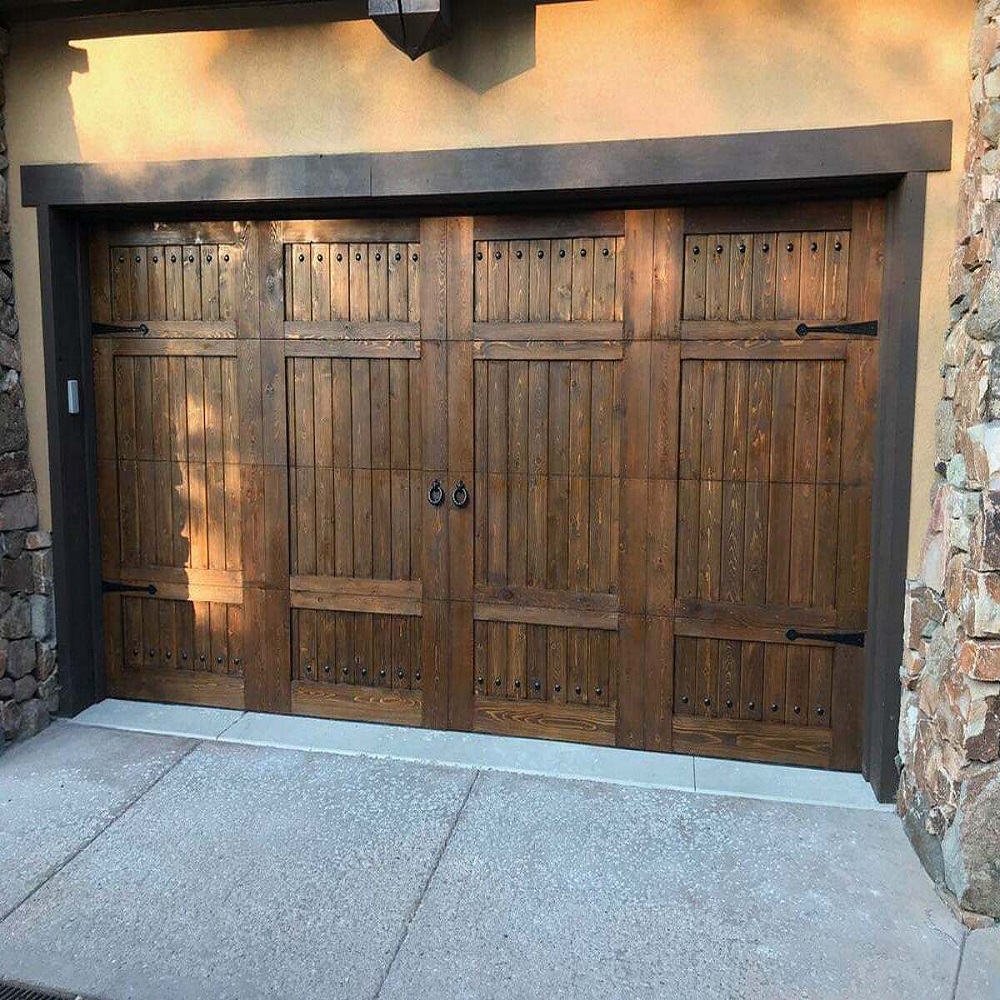Introduction to Garage Door Materials
Garage doors play a crucial role in the appearance and functionality of your home. They serve as a main entry point and significantly enhance the facade of your property. Over recent years, their design, craftsmanship, and materials have evolved, offering homeowners a variety of choices. Whether you’re looking for durability, aesthetic appeal, or both, understanding the materials available for garage doors is essential.
When selecting a garage door, it’s important to consider factors such as compatibility with your home’s style, maintenance requirements, and resilience to weather conditions. In this section, we will explore the different materials used to make garage doors. Each type has unique benefits and characteristics which contribute to its popularity and practicality. We’ll delve into materials including steel, wood, wood composite, aluminum, fiberglass, and vinyl, detailing their advantages and potential drawbacks.
Choosing the right material can improve your home’s value, enhance its curb appeal, and even increase its energy efficiency. Hence, learning about the various options can assist you in making an informed decision that aligns with both your aesthetic preference and functional needs.
The Popularity and Practicality of Steel Garage Doors
Steel garage doors are a go-to choice for many homeowners. Their popularity stems from their durability and the sleek, modern look they can give to a home’s exterior. Not only do they come in various finishes and styles, but steel doors also offer security benefits that are important to consider.
Advantages and Maintenance of Steel Doors
Steel doors provide impressive strength against wear and tear. They withstand tough weather conditions and resist warping and cracking, which adds to their longevity. In terms of maintenance, they are low-fuss. Regular cleaning with mild soap and water, along with periodic checks for scratches or dents that may need touch-ups, is usually enough. Painting is an option to match your home’s color scheme.
Drawbacks of Using Steel in Garage Doors
Though they are strong, steel doors can get dented. These dents are not always easy to fix and can affect the door’s appearance. In coastal areas, steel is prone to corrosion, so extra care or specialized coatings may be necessary to protect against rust. In extreme temperatures, non-insulated steel doors lack energy efficiency, which could impact your home’s heating or cooling bills.
The Classic Appeal of Wood Garage Doors
Wood garage doors boast timeless beauty. They blend well with many home styles, especially traditional and rustic. The natural texture and rich colors of wood doors add warmth to your home’s exterior. A well-chosen wood garage door can create an inviting and elegant impression.
Different Wood Types for Garage Doors
When considering wood for your garage door, many types come to mind. Cedar, redwood, and fir are popular choices due to their resistance to decay and insect damage. Meranti (luan) is also used. Each wood type has a unique grain pattern and color, allowing for a custom look.
Some woods are better suited for staining, while others look great painted. Cedar offers a warm tone with a straight grain. Redwood, often chosen for its durability, has a reddish hue. Fir is a more economical option and takes paint well. Meranti has a fine texture and works for a polished finish.

Care and Upkeep for Wood Garage Doors
Wood doors need routine care. Regular staining or painting protects against weathering. It’s vital to inspect for wear and tear. Address any chips or cracks quickly to prevent further damage.
Clean your wood garage door with gentle products to avoid stripping the finish. A soft cloth and mild detergent are often enough. Keep the area around the door clear of debris to avoid scratches and dents. With proper maintenance, your wood garage door will remain appealing for years.
Wood Composite Garage Doors: A Sustainable Alternative
Wood composite garage doors provide an eco-friendly choice for homeowners. They combine the appeal of wood with increased sustainability. These doors use recycled wood fibers mixed with other materials to create a sturdy product. The process of making wood composite doors helps reduce waste by using leftover wood from other industries.
Characteristics of Wood Composite Doors
Wood composite doors are known for their robustness and durability. The fiberboard layers, which often include high-density versions, add to this strength. Manufacturers simulate real wood by adding overlays and grooves. These realistic details enhance the door’s visual appeal. The insulation in these doors can also come from recycled materials, further supporting eco-friendly building practices.
Insulation and Aesthetic Options for Composite Doors
These garage doors offer excellent insulation options. They usually contain polystyrene or polyurethane insulation, making them energy efficient. As for aesthetics, wood composite doors are versatile. They can resemble various wood types and finishes, allowing for a customizable look. You can choose from a variety of styles to match your home’s architecture. This adaptation can significantly boost your home’s curb appeal and overall value.
Aluminum Frame Garage Doors: Modern and Lightweight
Aluminum garage doors are a stylish, modern choice for homeowners. These doors lend a sleek, contemporary look to your home. They’re known for being lightweight and resistant to rust, which makes them ideal for certain climates. Many colors and brushed finishes are available, allowing for customization. Aluminum doors can include large glass panels for a minimalist aesthetic that also lets in natural light.
Benefits of Aluminum Doors
The main benefit of aluminum garage doors is their resistance to corrosion. Unlike other metal doors, they don’t rust. This makes them perfect for coastal regions with salty air. Their light weight makes them easier to operate and reduces the wear on the garage door’s moving parts, potentially leading to lower maintenance costs. They also permit flexibility in design, with options like full-view doors that maximize natural light.
Potential Issues with Aluminum Garage Doors
Aluminum doors, though resistant to rust, can dent more easily than steel. They may not be the best choice for areas where the door could be hit by basketballs or other objects. Also, while they’re tough against corrosion, aluminum doors may not provide the same level of security as thicker, more robust materials. Lastly, they can be more expensive than steel, especially if opting for high-end styles with glass panels.

Advantages of Fiberglass Garage Doors
Fiberglass garage doors stand out for their resilience. They resist denting and cracking, unlike other materials. These doors won’t rust, making them ideal for various climates. With proper care, fiberglass doors can last a very long time, offering homeowners peace of mind when it comes to durability. Their lightweight nature also means less stress on the door’s operating system. This can lead to a longer lifespan for both the door and opener.
Durability and Longevity of Fiberglass
The double-layer construction of fiberglass doors enhances their sturdiness. They have steel frames with fiberglass bonded to them, and polyurethane insulation in between. The insulation increases energy efficiency, which can help reduce energy bills. These doors retain their shape through hot summers and cold winters. They also handle impact well, making them a durable option for active households.
Fiberglass Doors Compared to Other Materials
Fiberglass doors offer advantages over steel, wood, and aluminum doors. Unlike steel, they don’t dent easily, and they’re impervious to corrosion. They require fewer repairs than wood doors, which can be costly. They come in many styles and can mimic the look of wood without the maintenance. Fiberglass doors outshine aluminum in areas of durability and insulation. Although they might come with a higher upfront cost, their longevity and low upkeep can make them more cost-effective over time.
Vinyl Garage Doors: The Kid-Proof Choice
Vinyl garage doors are known for their durability and safety, making them an ideal choice for families with children. These doors are hard to dent or break, which adds to their longevity and makes them a safe option in play areas. The material’s toughness withstands everyday bumps and knocks without showing wear.
Features of Vinyl Garage Doors
Vinyl doors offer several impressive features. They often come with a steel frame, enhancing their sturdiness. Manufacturers fill these doors with polyurethane insulation, which boosts energy efficiency. This material does not rust, and it handles various weather conditions well. Available in multiple colors, vinyl doors can be tailored to suit your home’s exterior. They also require minimal upkeep, which is a significant advantage for busy homeowners.
Maintenance Tips for Vinyl Garage Doors
Caring for vinyl garage doors is straightforward. They typically need just a periodic cleaning with a hose. No special cleaning agents are necessary; water usually does the job. It is essential to check the door’s tracks and rollers occasionally to ensure they operate smoothly. Lubricating the moving parts yearly can prevent noise and wear. With these simple maintenance steps, your vinyl garage door can remain functional and attractive for many years.

Conclusion: Choosing the Right Material for Your Garage Door
Choosing the right garage door material is crucial. It affects your home’s appearance, security, and energy efficiency. Steel doors offer durability and a modern look. They need regular maintenance and can dent. Wood doors bring timeless beauty but require more upkeep. Wood composite doors provide sustainability and durability. Aluminum doors are lightweight and resist corrosion, ideal for coastal areas. Fiberglass doors are durable and energy-efficient, suitable for various climates. Vinyl doors are tough and safe, making them perfect for families with kids. Consider your home’s style, climate, and security needs before choosing the material.
